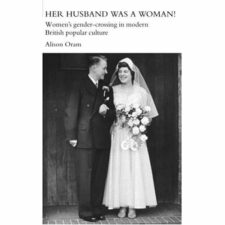October at the Women’s History Blog is Black History Month, where we endeavour to provide a range of posts providing the most up to date research in the area of black women’s history. Yet, at the Women’s History Network Conference, ‘Looking Back – Looking Forward’, a couple of weeks ago, there was some discussion of how ‘white’ the traditional historiography of Britain has been, and, indeed, how ‘white’ the British academy remains today in terms of its ethnic make-up – a feature that may continue whilst state funding for the humanities is removed, reinforcing it as a subject for a social elite in institutions that lack meaningful ethnic diversity.
One of the more interesting discussions to emerge from the conference was the extent to which some of this whiteness is an act of historical imagination. It was not because black women were absent in the past that they do not feature in ‘our’ histories, but because they have not been included. As Natalie Thomlinson noted in her paper on race and Second Wave Feminism, literature around the movement has tended to focus on organisations dominated by white women; histories of black feminist organisations during the period are much harder to come by.
Caroline Bressey’s plenary paper on ‘Geographies of Belonging’ was even more enlightening as she traced the history of one extended black family in nineteenth-century London. She not only showed the movement of the family across homes in the city, and in and out of welfare institutions, but demonstrated the intermarriages of white women into the family. Bressey noted that the ways that black people were integrated into London society, no doubt experiencing forms of racism, but ones that were different from those experienced in the twentieth century, where historical amnesia denied the long-history of black people in the British isles.
Perhaps, more chillingly, was Jane Carey’s paper on the relationship between early-twentieth-century feminism and eugenics. It is difficult for the modern feminist to conceive that women that fought for women’s rights around reproduction were simultaneously motivated by a desire for choice and to maintain ‘racial purity’. Yet, that was what motivated Marie Stopes in Britain and the Family Planning Association in Australia. The exclusion and subordination of other social groups is therefore a part of feminism’s history – but hopefully a part that we learn lessons from! As we look forward to next week’s celebration of Black History Month, it is worth remembering that the inclusion of black history into our narratives is a choice that we all need to remember to make. Thinking of Britain’s past as white is surprisingly easy, but it is not only inaccurate, but an act of power that silences women.
Katie Barclay is a historian at the University of Adelaide. She spent her last weekend in the UK enjoying the vibrant contributions of women’s historians to our understandings of the past.
